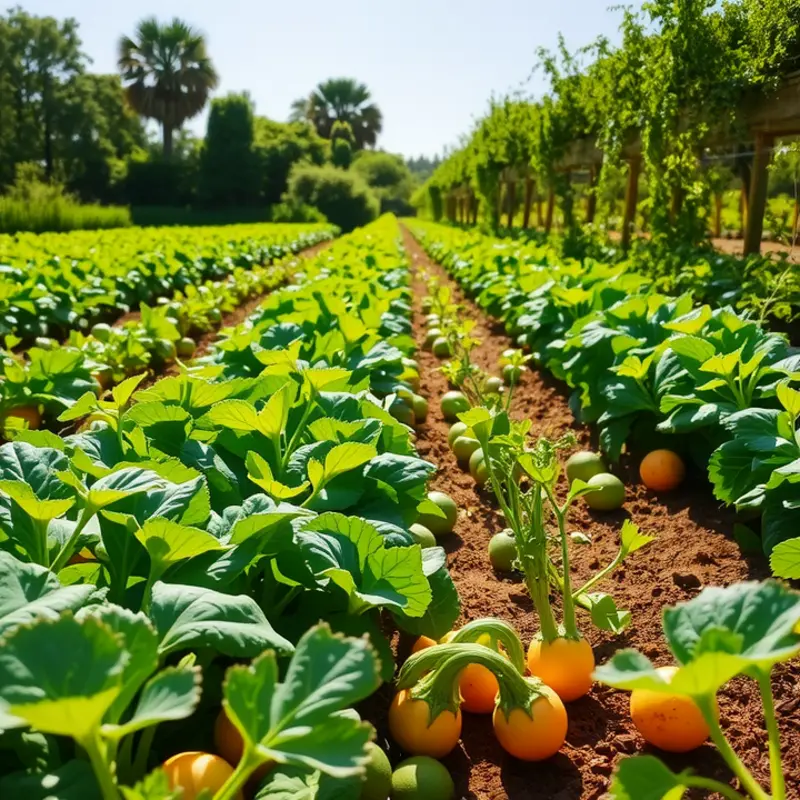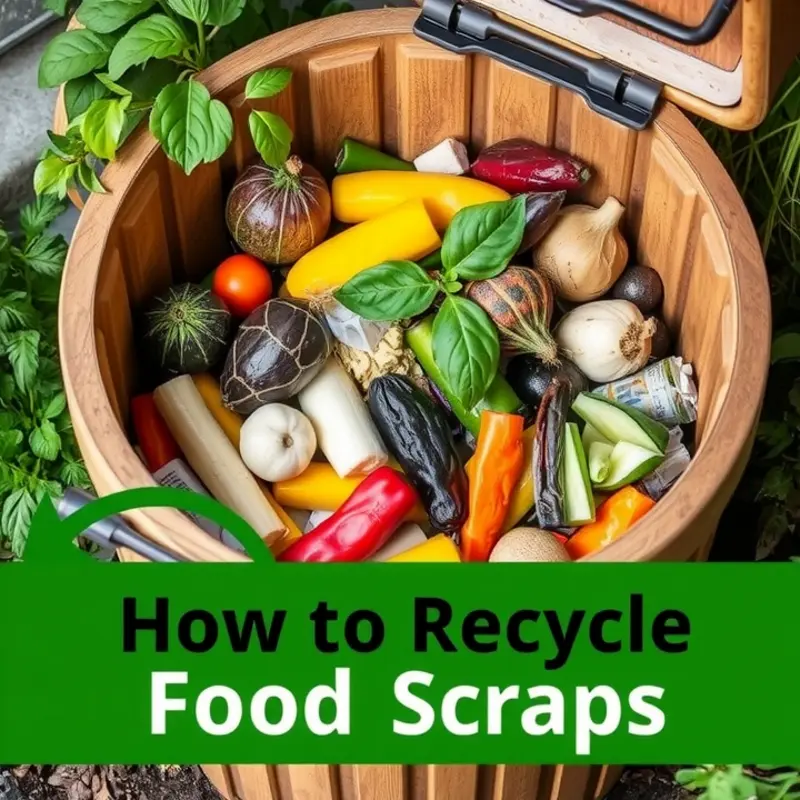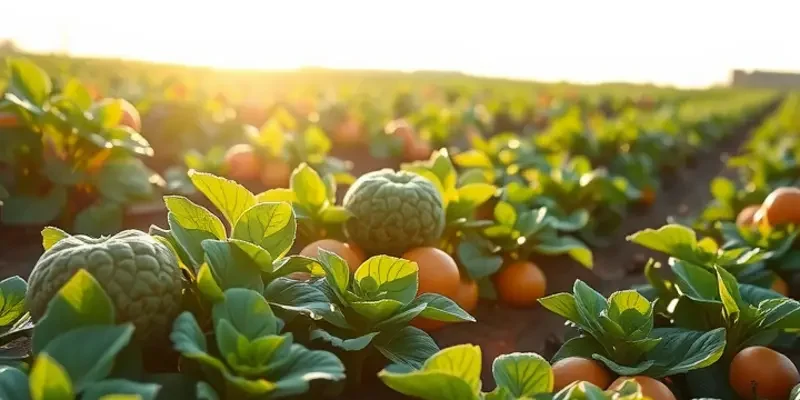Food composting plays a pivotal role in environmental stewardship, allowing you to turn kitchen scraps into nutrient-rich soil. By composting, not only do you minimize landfill waste, but you also contribute to a sustainable cycle that nourishes the earth. As eco-conscious individuals, embracing composting aligns with your commitment to making responsible choices that benefit both nature and future generations. Let’s explore the essentials of food composting and how you can easily get started.
The Concept of Composting: Nature’s Recycling System

Composting is a natural way to recycle organic waste by transforming kitchen scraps into nutrient-rich soil. When food waste is composted, microorganisms break it down into its core components, producing dark, crumbly humus over time. This process not only provides a way to dispose of food waste sustainably but also results in nutrient-rich material that enriches the earth.
Adopting composting effectively reduces the amount of waste sent to landfills. Food scraps make up a significant portion of household waste. When thrown away, these scraps often end up in landfills where they decompose anaerobically, releasing methane—a potent greenhouse gas that contributes to climate change. By diverting organic waste from this fate, composting significantly cuts down on greenhouse gas emissions.
In addition to its role in waste reduction, composting improves soil health and structure. Compost acts as a natural fertilizer, adding essential nutrients such as nitrogen, phosphorus, and potassium back into the soil. This enriches the soil, enhancing its capacity to retain moisture and reducing the need for chemical fertilizers. Healthy soil can lead to increased agricultural productivity and cultivate more resilient plant growth.
Composting fits neatly into broader sustainability efforts. It not only curbs waste production but also fosters a circular economy model by turning waste into valuable products. At a community level, composting initiatives can serve as educational tools, emphasizing the importance of sustainability and environmental stewardship. Schools, community gardens, and local governments can engage in compost programs, supporting the development of sustainable habits.
To successfully integrate composting into daily life, individuals can start a compost system at home. A simple backyard compost pile or bin is effective for households, while urban dwellers may choose worm bins or participate in community compost programs. For more tips on creating an eco-smart kitchen to reduce food waste, check out tips for eco-smart kitchen storage.
Understanding the nuances of composting underscores its potential as a green solution. It’s a simple yet profoundly impactful way to address global environmental challenges, turning one person’s trash into the earth’s treasure. Through composting, every individual can contribute to creating a more sustainable and greener tomorrow.
Getting Started: Steps to Successful Food Composting

Composting is a straightforward way to transform kitchen scraps into nutrient-rich soil. Starting your home compost can be a rewarding and sustainable practice. Here’s a guide to help you begin your composting journey.
What You Can Compost:
You should focus on compostable items such as fruit and vegetable scraps, coffee grounds, eggshells, and tea bags. These materials break down well and contribute essential nutrients to your compost.
What You Can’t Compost:
Avoid composting meat, dairy, and oily foods as they can attract pests and create unpleasant odors. Additionally, refrain from using treated wood, diseased plants, or pet waste, which can introduce toxins and pathogens.
Composting Methods:
There are several ways you can start composting at home depending on your available space and preference.
-
Compost Bins: Perfect for urban backyards or small gardens. Bins come in various sizes and help keep the compost contained and organized.
-
Compost Piles: These are suitable for larger areas and require less initial investment. Simply layer your compostable materials in a designated spot in your yard. Make sure the pile is at least three feet high and wide for optimal decomposition.
-
Vermicomposting: If space is limited, vermicomposting is an excellent indoor option, using worms to break down food scraps. Ensure the worms are in a ventilated bin and regularly fed with non-citrus fruit scraps and vegetable peelings.
Maintaining Your Compost:
To maintain aerobic conditions and promote decomposition, turn your compost pile every few weeks. This helps to aerate the materials and maintain heat necessary for breaking down the organic matter.
Monitor moisture levels regularly. Compost should feel like a damp sponge—if it’s too dry, add water; if too wet, incorporate dry materials like shredded newspaper.
To speed up the decomposition process, chop materials into smaller pieces before adding them to your compost bin or pile.
Prevent foul odors and pest attraction by regularly covering food waste with a layer of browns—like dried leaves or straw. This also helps retain moisture and heat in the pile.
Finally, patience is key. Depending on factors like climate and materials used, it may take a couple of months to a year for your compost to mature. The final product should be dark, crumbly, and earthy-smelling.
For further insights on sustainable kitchen practices, you might find this eco-smart kitchen storage guide helpful. It covers strategies to maximize sustainability from your kitchen.
Adopting these steps not only reduces landfill waste but also enriches your garden with natural fertilizer. Composting is an ongoing learning experience, and with each cycle, you become more adept at transforming waste into a green resource.
Final words
Composting is more than just a practice; it’s a commitment to sustainability and a healthier planet. By taking the time to compost your food waste, you not only reduce the volume of trash sent to landfills but also create a valuable resource for nourishing the soil. As you start your composting journey, remember that every little effort counts. Each banana peel and coffee ground contributes to a more vibrant environment, allowing you to play an active role in promoting ecological balance. Let’s make composting a part of our daily lives and cultivate a brighter, greener future.








